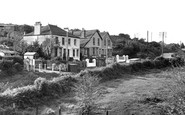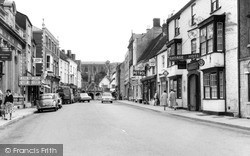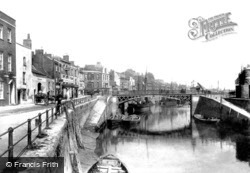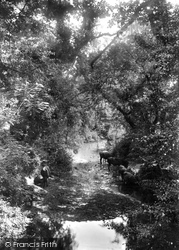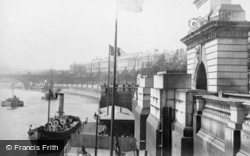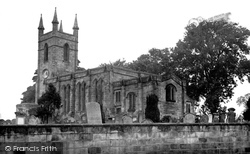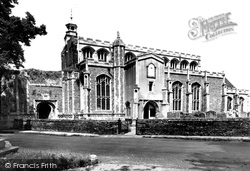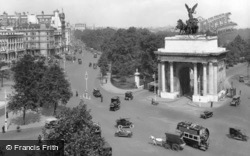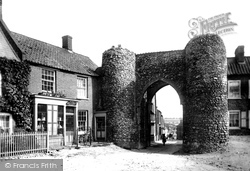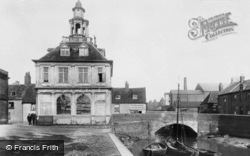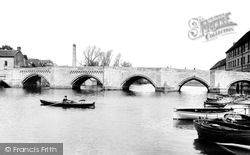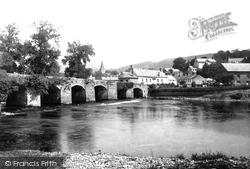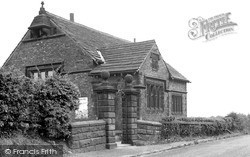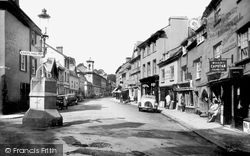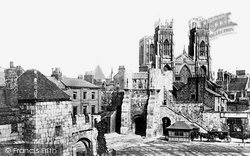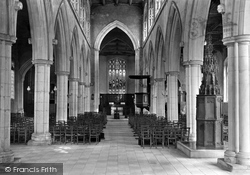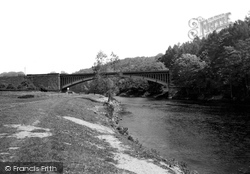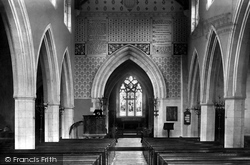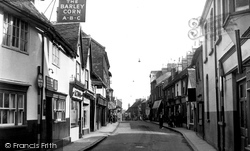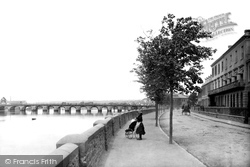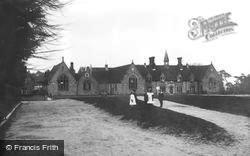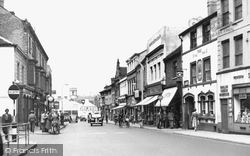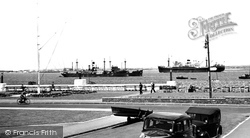Places
Sorry, no places were found that related to your search.
Photos
5 photos found. Showing results 321 to 5.
Maps
83 maps found.
Books
Sorry, no books were found that related to your search.
Memories
1,127 memories found. Showing results 161 to 170.
Childhood Holidays
My grandparents lived at Clearbrook, and as a child I used to spend nearly all of my summer holidays with them. I used to love going for rides on the train to Tavistock and Princetown. My gran took me on a train to Princetown ...Read more
A memory of Clearbrook in 1955 by
Childhood In Buckhurst Hill
I lived at 4 Fairlands Avenue, Buckhurst Hill. My parents moved there just before the Second World War, and I was born in April 1939. I well remember W.C.French Ltd's yard next to Fairlands Avenue fronting the ...Read more
A memory of Buckhurst Hill in 1940 by
Childhood In The 1950s
Life for a child in the village of Worle in the 1950s was exciting, parochial and safe. Our parents did not lose sleep over thoughts of us being molested. Children were more likely to be in danger from their own recklessness ...Read more
A memory of Worle in 1956 by
Childhood In The Village
I moved to Hatfield Peverel in late 1941, after my family was bombed out in London. My father took the Duke of Wellington pub over, where we lived until 1949. Yes they were good years in the village, but at the ...Read more
A memory of Hatfield Peverel in 1942 by
Childhood Memories
I moved to Tottenham when I was 5 yrs. We moved because of my dad’s work which at the time was Hope and Anchor Brewery, and then merged with Charrington’s Brewery, in Tottenham Brantwood Road, my dad delivered the beer to various ...Read more
A memory of Tottenham by
Childhood Memories
I was born at home in a house within a housing estate called East Park, I think it was No 39, in Old Harlow and then we moved to No 38 Chippingfield, Old Harlow. My elder brother went to Mark Hall School and my other brother and I ...Read more
A memory of Harlow in 1964
Childhood Memories
I remember when I was just a young teenager... you could roam around the village and just about everyone knew you. I loved to wander down to Mill Stream Lane with my jam jar and fishing net and walk along the stream ...Read more
A memory of Watton at Stone in 1968 by
Childhood Memories
These memories have been contributed by Myra Greer. In 1947, when I was 7, my mother and I moved from Salisbury in Wiltshire where my father was stationed at RAF Boscombe Down, to near Llanfarian, where my grandparents had ...Read more
A memory of Llanfarian in 1947
Childhood Memories
Hi there, some of you may know me or my family, at the top end of Pike Lane, or 'Havens Hill' as it was called. Does anyone remember the fish and chip shop and the coal yard in that lane by the way? My memories are of :- Helping ...Read more
A memory of Armitage in 1956 by
Childhood Memories By Deborah Taylor Nee Barraclough
As a child I spent all my summers in Pickmere at my nana's caravan on a camp site just across from the entrance to Pickmere Lake. My nana worked in the Happy Hour Club, and also in Happy Hour ...Read more
A memory of Pickmere in 1963 by
Captions
1,233 captions found. Showing results 385 to 408.
Also on the right is the arched coach entrance to the George Hotel.
The main port lay north of this point, since a medieval three- arched stone bridge blocked the further passage of tall craft upstream along the River Parrett; even in the early 20th century,
Bathpool is now very much a suburb of Taunton, with the spread of the Somerset town on one side and the M5 motorway on the other.
Bazalgette also designed the Temple Pier and its arch of 1868.
Though St Mary's contains a Norman chancel arch, much of the building dates from John Dobson's restoration of 1828-29.
The western tower was started later in 1525 with a stone base and, as at nearby Dedham, a vaulted ground floor with processional arches in the north and south sides.
The arch of this impressive monument was originally crowned by Wyatt’s colossal equestrian statue of the England’s military darling, the Iron Duke.
Spanning the narrow street of this hill-top village, which rests high on the chalk uplands overlooking the River Nar, is this monumental arch, ancient gateway to the castle, which lies ruinous close by
It began life as the Merchants' Exchange, with an open-arched arcade on the ground floor. This was blocked in 1718 when the building was converted for use as a Customs House.
The arch of this impressive monument was originally crowned by Wyatt's colossal equestrian statue of the England's military darling, the Iron Duke.
The stone, six-arched bridge was built in 1332, and was only superseded in 1975 when the new bypass flyover was built.
It is a curious fact that the side shown in the picture has thirteen arches, whilst the other side has one fewer.
Viewed from the west, the façade of the west front is dominated by the Great West Window and the Triple Arch Door.The west front of many cathedrals were intended to be showpieces.
Built in 1877 for a much smaller community, its facilities had failed to keep pace with its teaching standards.
The building on the right with the granite arch is now A R Church, an ironmonger's, but was once the Mermaid Inn and played host to the Parliamentarian General Fairfax during the Civil War.
The stone-arched building on the right was the postern tower built in 1497 on St Mary's Abbey walls; it is now an office for First York Buses.
A huge iron chandelier now hangs from the central arch.
Victoria Bridge, on the Severn Valley railway line from Bewdley to Bridgnorth, has a span of 200 feet; when it was built in 1862, it was considered the largest cast iron single arch bridge in the world
The stencil work and texts above and around the chancle arch, including the Ten Commandments, are now hidden by modern paintings of 1970 by John Ward showing scenes from the Holy Week and creating a more
In this photograph we head north-east out of Market Square along Cambridge Street, once known as Bakers Lane, a road that haas seen much change since the 1950s.
Its 16 arches vary in size, a fact that is traditionally attributed to the varying lengths of the timber used as scaffolding during its construction. It has been widened several times.
Later all the decorative work - finials, dormers, chimneys and belfry - was removed, leaving a much plainer facade, but the school survived until 1990, afterwards being adapted as Chequer
However, restoration work was carried out between 1854 and 1875, saving the Norman nave and chancel arch. The Norman-style font actually dates from 1856 and the reredos from 1910.
Moving into the Thames Estuary, the river passes Erith, a much rebuilt and rather forlorn remnant with its medieval church of St John the Baptist; the town is now joined by development inland to Bexley
Places (0)
Photos (5)
Memories (1127)
Books (0)
Maps (83)

